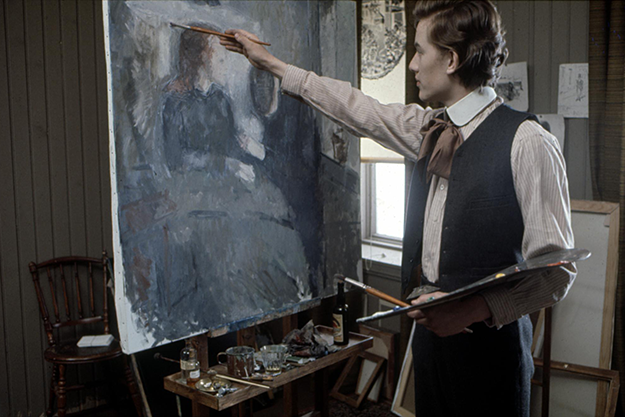Norwegian expressionism may not be at the top of your list when discussing art but it’s likely you’ll have seen at least one of Edvard Munch’s paintings. Indeed, I’d wager that The Scream would be up there with the most well-known paintings. He’s arguably the first Expressionist painter, alongside Gustav Klimt, and had a profound influence on the renowned German Expressionism movement of the early 20th Century.
Originally aired as a three-part TV mini-series in Scandinavia, Peter Watkins’ film Edvard Munch was eventually given a theatrical release in America and screened at Cannes. Watkins opts to cover a period of about thirty years of Munch’s life in the style of a docudrama. He also provides a voiceover which joins up the narrative and adds context. The themes of the artist’s work mirror those of his life: death, disease, isolation and an attraction to married women.
Watkins cannot be accused of a lack of thoroughness, and what the film loses in pace it gains in a wealth of interesting facts. The disease, a pious and overbearing father, poverty and mental illness were key in influencing his painting. Munch’s role as an outsider and pariah of conservative society is paralleled by the criticism Watkins received for using mainly untrained actors. Edward Munch would be all to familiar with the subsequent attempts to suppress its release.
Contents:
- Director-approved high-definition restoration of the long version
- Newly translated optional English subtitles
- Optional SDH subtitles for the deaf and hard of hearing
- 80-page book with a Peter Watkins self-interview, writing by Joseph Gomez, a Munch timeline, and numerous artworks
Edvard Munch is available on Dual Format Blu-ray and DVD by Eureka Entertainment as part of their Masters of Cinema collection and released on Monday














No Comment